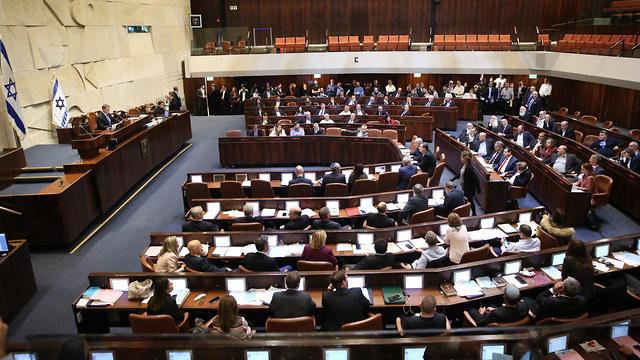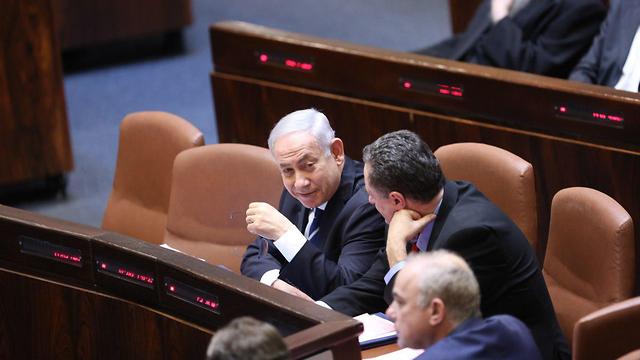The Knesset on Thursday approved a motion to hold an unprecedented third national vote in less than a year on March 2, 2020 after Prime Minister Benjamin Netanyahu and his main rival Benny Gantz failed to parlay the previous two ballots into a new coalition government.
The bill was approved with 94 lawmakers voting in favor to none opposed just hours after the Knesset was officially dissolved at midnight Wednesday as the deadline to form a new government passed, almost three months after Israel last went to the polls.
That now triggers a nearly three-month-long campaign ahead of the vote that most polls predict will not produce dramatically different results that led to the current logjam.
Earlier on Wednesday, the Knesset passed the first reading of a bill to dissolve itself with the rest of the required readings was to be fast-tracked through parliament overnight.
But, as time ran out, Israel was automatically propelled into a third election cycle within 12 months, leaving MKs only determine the date of Election Day.
Israeli law states that should no government be formed within the allotted period after an election, parliament is dissolved with a fresh ballot to take place within 90 days. The date, however, was preempted by a week in order to avoid the elections date clashing with Purim holiday.
Both Netanyahu and his chief rival Gantz have for weeks insisted they want to avoid another costly election campaign, but neither has been willing to compromise on their core demands for a power-sharing agreement.
Both sides said they were working until the last minute to find some way out of the deadlock. However, a breakthrough seemed highly unlikely.
Netanyahu's recent indictment on corruption charges has added a murky legal imbroglio to the saga. He faces charges of bribery, fraud and breach of trust in three corruption cases in which he is accused of trading legislative or regulatory favors in exchange for lavish gifts or favorable media coverage. Netanyahu denies wrongdoing.
Netanyahu had hoped for a sweeping victory in September's elections, winning him a majority that would grant him immunity from prosecution. He can can now hope that the next election delivers him a more favorable result. Netanyahu's trial is on hold until the immunity issue is resolved, a process that is expected to take months.
After the March election, he also could use coalition negotiations as leverage to push potential partners to support his immunity request.
Under Israeli law, a sitting prime minister charged with a crime is not required to step down. But Netanyahu's opponents argue he cannot guide the country through its myriad challenges while fighting his legal battles.
Another campaign, and the national holiday of Election Day will cost the economy billions.



